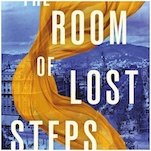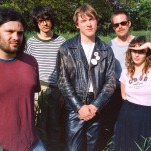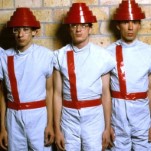Bono: Still Going where the Streets Have No Name
Bono fell in love with Africa in 1985, shortly after his triumphant appearance with U2 at the London Live Aid show. He spent the month of September with his wife, Ali, at an Ethiopian refugee camp in the northern province of Wella. The visit inspired a limited-edition book of black-and-white photographs, A String of Pearls, as well as the song, “Where the Streets Have No Name.”
It also inspired a passion for the continent. “I saw stuff there that reorganized the way I saw the world,” he says. “I didn’t know quite what to do about it. You can throw pennies at the problem, but at a certain point I felt God wasn’t looking for alms. He was looking for action. You can’t fix every problem, but the ones you can fix, you have to.”
Bono’s course of action has been to throw his weight, and his name, behind several high-profile campaigns to raise awareness about African suffering and Western responsibility. Since 2002, these efforts have been channeled through DATA (Debt, AIDS, Trade, Africa) the organization he founded—with Bobby Shriver and activists from the Jubilee 2000 Drop the Debt campaign—to pressure governments of rich nations to be more Africa-friendly and African governments to be more people-friendly (DATA can also mean Democracy, Accountability, Transparency, Africa.)
Bono’s access to the most powerful people in the world is unparalleled in the arts or show business. Dylan requested that senators and congressmen “please heed the call” but he never campaigned on Capitol Hill. Bono knows fame is a currency that can get you to places where money, looks and even breeding can’t. And he’s chosen to spend that currency on things other than getting the best tables in restaurants. “We have a spotlight on us,” he says. “U2 fans have given me a great life and I’m a spoiled-rotten rock star. My kids don’t have to worry about schooling or medical bills. In return, there’s a deal. One, don’t bend over. Two, use this spotlight to shine on bigger problems.”
-

-

-

-

-

-

-

-

-

-

-

-

-

-

-

-

-

-

-

-

-

-

-

-

-

-

-

-

-

-

-

-

-

-

-

-

-

-

-

-








































